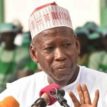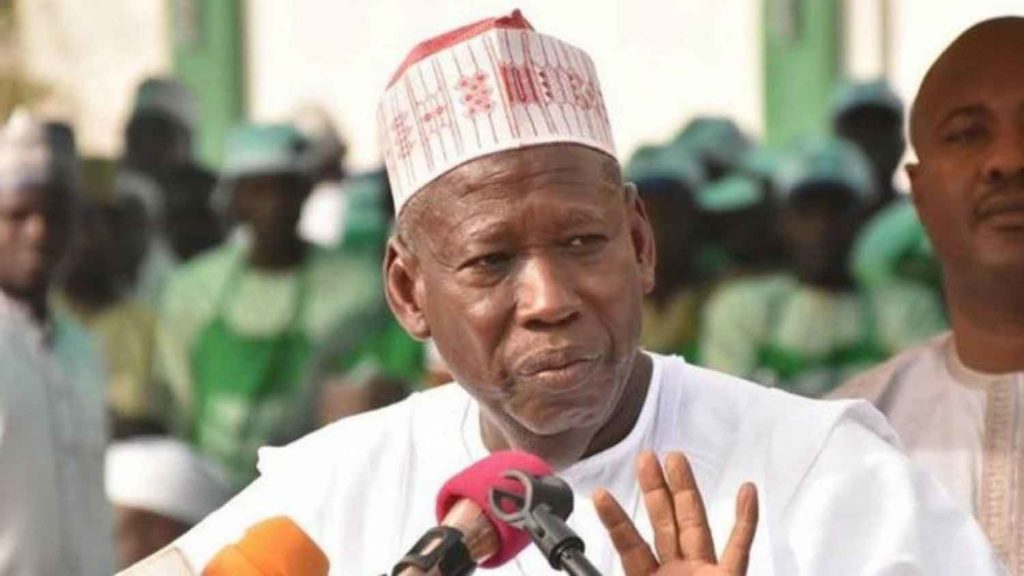

By Yinka Odumakin
IT is not difficult for anyone who has done a diligent study of Nigeria to come to the immutable conclusion that what would kill the “impossible country” would not come from the fire of the enemy at the frontline but from the array of its fault lines.
Fault lines are divisive or differences of opinion that are likely to have serious consequences on a polity and they are by far the major obstacle to a nation emerging out of the dysfunctional country called Nigeria.
Our incorrigibly illiterate rulers often call this a nation; when a nation is a large body of people associated with a particular territory that is sufficiently conscious of its unity to seek or to possess a government peculiarly its own. A country means no more than a political space and may consist of divergent people and be disunited under a government. Nigeria fits that more than a nation.
May the soul of Chief Richard Akinjide, SAN, rest in peace. The man did extensive work to show that Lord Lugard was not looking for a nation when he put Nigeria together. He could not have declared that “I have found a northern suitor for the southern lady of means” when he was done with his lousy experiment.
Common aspiration
There has never been a common aspiration or consensus around here. At a time other countries were fighting guerrilla warfares against their colonialists, we were killing ourselves so we could remain under colonial rule. When through the late Chief Anthony Enahoro, one of the leading lights of anti-colonial struggle and a prominent member of the Obafemi Awolowo-led Action Group, AG, a motion was moved that Nigeria should become independent in 1956 at the Federal parliament, hell was let loose.
That motion should have been unanimously supported by members of parliament if an “impossible country” was not in the making. Enahoro had said in the preamble to his motion on the floor of the Federal House of Representatives that any proposal short of full political independence for Nigeria “has ceased to be a progressive view because Nigerian nationalism has moved forward from that position”.
In a response that showed the fault lines of Nigerian nationalism in the late colonial era-and since then, Sir Ahmadu Bello of the Northern Peoples Congress, NPC, introduced a dilatory motion substituting the phrasing “as soon as practicable” for the year “1956” proposed by Enahoro.
In an undisguised reference to the superficiality of the “Nigerian nationalism” which Enahoro and his Southern compatriots were lionising, Bello added: “Sixty years ago, there was no Nigeria but merely a collection of communities very different in outlook and mode of life”.
The North threatened to leave Nigeria over the quest for independence by the South. In anticipation that the NPC which had more numbers in the House was going to win the vote, the NCNC and AG members in the House of Representatives walked out of the House.
The meeting of the House was adjourned and members of NPC met very unfriendly crowd in Lagos. They were called all sorts of names before they left for the North. A retaliatory move by Northern leaders happened with riots and killings in Kano when an AG delegation led by S. L. Akintola visited to campaign on benefits of Independence, when an AG delegation visited after the adjournment.
Unfriendly crowd
The North thereafter asked for the following conditions to return to Nigeria: 1) That each region shall have complete Legislative and Executive autonomy with respect to all matters except the following: External Affairs, Defence, Customs and West African Research Institutions;
(2) That there should be no Central Legislative body and no Central Executive or Policy making body for the whole Nigeria; (3) That there shall be Central Agency for all regions which will be responsible for matters mentioned in paragraph (1) and other matters delegated to it by a Region;
(4) That the Central Agency shall be a neutral place preferably Lagos; (5) That the composition and responsibility of the Central Agency shall be defined by the Order-in-Council establishing the constitutional arrangements. The agency shall be a non-political body. (6) That the services of railway, air, posts and telegraphs, electricity and coal mining, shall be organised on an inter-regional basis and shall be administered by public corporations.
READ ALSO: Kano not getting needed support from PTF on COVID-19 ― Ganduje
These corporations shall be independent and covered by the statutes under which they are created by the board of experts with a minority representation of the regional governments; (7) All the revenues shall be levied and collected by the regional government except Customs revenue at the port of discharge by the Central Agency and paid to its treasury;
(8) The administration of the Customs shall be so organised so as to assure that goods consigned to the region are separately cleared and charged to duty. Each region shall have a separate public service.
We eventually became independent in 1960 and the absence of consensus on becoming a nation pushed us into a civil war within seven years.We fought a three and a half years civil war after which we raised the lie of “no victor, no vanquished”. We know we have both in our post-war experience and that is why the country had been under low-intensity warfare ever since.
Our “no agreement today, no agreement tomorrow” has even followed us into Coronavirus pandemic. As I drove through the streets of Lagos the day President Muhammadu Buhari lockdown started, I saw trailers moving people of Northern origin out of the city. I called my wife’s attention to the development and asked if they thought the pandemic was a Lagos affair that they would not meet in the North.
My other concern was that the class of people I saw in those trailers could not have organised those vehicles overnight. In essence it confirms most of those folks we see around us have their traffickers. A further worsening dimension was added to the folly when Northern governors met and issued a communique that they could not afford to shut down when most of the South was already “staying home”.
The sickening communique issued by them irritatingly said further: “…at the moment, each state would adopt the measure suitable to its setting because total lockdown of the region will come at a very high cost since most of our citizens are farmers who need to go to farms since the rains have started. Among other decisions taken at the meeting was the setting up of a seven-man committee chaired by Governor of Kebbi State, Atiku Abubakar Bagudu, to fashion out the way forward. Other members are governors of Kaduna (who was under Coronavirus treatment at the time), Sokoto, Kwara, Nasarawa, Jigawa, Gombe and Nasarawa states.
Economic prospects
“The committee, among other issues, would look at the economic impact of COVID-19 on the region and take a holistic look at the economic prospects of the region, with a view to repositioning it for less reliance on federal allocation and to prepare for the future by diversifying to areas of comparative advantage, such as agriculture, manufacturing, tourism and human capital development.”
In how many days after, the pandemic is in 28 out of 36 states with Kano in the third position? States in the north are now locking down on their own. Mass deaths are occurring in Kano with no reasonable explanation than denials.
I have read the reaction of Kano Government over and over but each time it turns out like a composition by a COVID-19 patient woken up suddenly at an isolation centre:
‘Mysterious Deaths’: Kano Govt Reacts*
Kano State government on Sunday acknowledged recent deaths in Kano, promising that the state government is on top of the situation, as Governor Abdullahi Umar Ganduje has already directed the state Ministry of Health to conduct a thorough investigation into the immediate and remote causes of the deaths. In a statement made available to journalists in Kano, the state Commissioner of Information, Malam Muhammad Garba, said although investigation into the cause of the deaths is still ongoing, preliminary report from the state Ministry of Health indicated that the deaths are not connected to the COVID-19 pandemic.
He added that reports from the state Ministry of Health have shown that most of the deaths were caused by complications arising from hypertension, diabetes, meningitis and acute malaria. He further stated that Governor Abdullahi Umar Ganduje is earnestly waiting for the final report from the state Ministry of Health so as to take necessary action.
According to him, Governor Ganduje from the onset, demonstrated the zeal and political will to curb the spread of COVID-19 in the state. Governor Ganduje’s administration has been commended from within and outside the state over the proactive measures it took towards curbing the COVID-19 pandemic. This explains why Kano, apart from being the most populated state, did not record a case of the pandemic until lately.
Though we agree that the situation on hand currently is serious, we are not resting on our oars in taking appropriate measures to ensure that the good people of Kano state, and indeed, residents in the state protect themselves from the novel COVID-19 pandemic.
He further noted that part of measures taken by the state government to stop the spread of the virus include the on-going lockdown, closing of boarders, aggressive campaign for social distancing, washing and sanitizing of hands, as well as strict adherence to and practice of the principles of personal hygiene.
He added that the government through the Kano COVID-19 Fund-Raising Committee, has been making palliatives available to the most vulnerable and the needy in the society. Garba said, moreso, the state government has three modern Isolation Centres where those tested positive to COVID-19 are being cared for. We are also hopeful of getting additional two Isolation Centres soonest. The government has also hired a hotel where suspected cases are accommodated.
Passionate appeal
Also, Kano State government is collaborating with Bayero University Kano, BUK, to establish a testing centre within the institution, which will be ready in two weeks time after being certified by the NCDC. This will, indeed, enhance our determination to ensure that every suspected case undergo test.
Governor Ganduje has also sent a passionate appeal to the Federal Government to urgently work on the NCDC testing centre at AKTH which has been closed down for sometime now. We have enough medical manpower that can take care of the patients. What we are now asking for is financial assistance from the Federal Government and other donors to help sustain all this infrastructure and also continue the provision of palliatives to our people.
He noted that the state government is concerned over what is happening. The Ministry of Health is already handling the situation. When they are through with the medical investigation, further necessary actions will be taken. I urge the good people of Kano State not to panic. Government is on top of the situation. The mystery or whatever it is will soon be unravelled.
Signed:
Malam Muhammad Garba
Commissioner of Information
Kano State.”
Now all the four weeks Lagos, FCT, Ogun and other states have spent under proactive measures are now coming to waste as the lack of consensus is now taking us back to the period Coronavirus chose to wake up the northern region. We are going nowhere without consensus.
The post Coronavirus and our fault lines appeared first on Vanguard News.
https://ift.tt/2W7HGbe by Emmanuel Okogba via Vanguard News Albert Einstein Fools of Fortune
Comments
Post a Comment